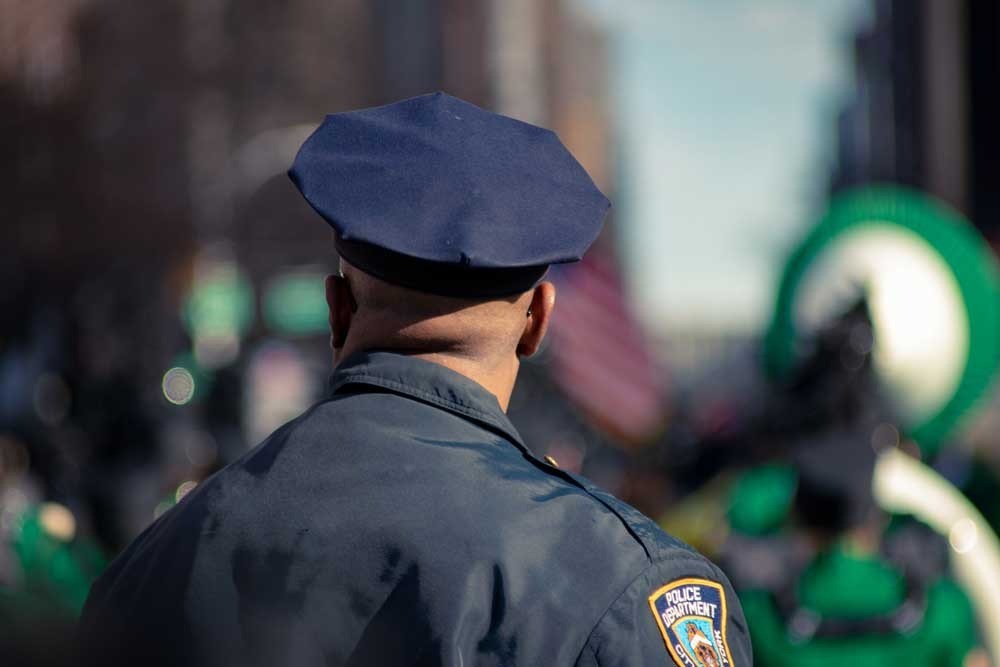Like many slang terms, pinpointing the exact moment and reason why law enforcement officers began being called “cops” is shrouded in a bit of mystery. While numerous theories attempt to explain this ubiquitous nickname, many of them miss the mark. Let’s dive into some of the most popular, yet inaccurate, explanations before uncovering the real story behind “cops.”
- The “Constable on Patrol” Myth
One widespread theory suggests that “cop” is simply an abbreviation of “constable on patrol.” While it’s a clever attempt at creating a logical shorthand, this explanation is highly improbable. Language rarely evolves through acronyms becoming everyday slang. Furthermore, “constable” isn’t even a commonly used term for police officers in the United States, making this origin story even less likely.
- The “Copper Buttons and Badges” Conjecture
Another intriguing theory links “cop” to “copper,” suggesting police were nicknamed this due to the shiny copper badges and buttons adorning their uniforms. While visually appealing, this theory also falls short. Historical evidence doesn’t strongly support the widespread use of copper in early police uniforms. It’s more plausible that this narrative emerged after the term “cop” was already in use, serving as a retroactive justification for the “copper” connection.
The Real Origin of “Cop”: Tracing Back to “To Cop”
Forget the fanciful tales of constables and copper; the true etymology of “cop” referring to police officers lies in a more direct and action-oriented source: the verb “to cop,” meaning “to seize or arrest.”
The verb “cop” began its association with law enforcement around 1844, initially used as a stand-in for “to arrest.” This usage quickly gained traction. As being “copped” became synonymous with being arrested, the term naturally extended to the person doing the arresting – the “copp-er.” By 1846, “coppers” was already circulating as a common term for police officers in everyday conversation. Interestingly, by 1859, “copper” was shortened back to the succinct and impactful “cop,” the very term we still use for law enforcement today.
Beyond “Cops”: Exploring Other Police Nicknames – “The Fuzz,” “5-0,” and More
Now that we’ve clarified the origin of “cops,” what about other popular nicknames for the police? How did terms like “the fuzz” and “5-0” enter our lexicon? Let’s investigate some of these colorful monikers.
“The Fuzz”
The origin of “the fuzz,” a nickname that gained prominence in the 1960s and 70s, remains somewhat hazy. Several theories attempt to explain its emergence. One suggests “fuzz” might be derived from the static sound emanating from police radios. Another theory points across the Atlantic, noting that British police officers are known for wearing hats made of somewhat fuzzy material. Alternatively, it could be a reference to the short, fuzzy haircuts often given to new recruits upon graduating from the police academy. Finally, a more abstract theory proposes it’s a quirky abbreviation of “the force,” as in police force.
“5-0”
“5-0” (pronounced “five-oh”) owes its popularity to the iconic television show Hawaii Five-O, which aired from 1968 to 1980. In the show, “Five-O” specifically designated the Hawaiian police force, referencing Hawaii as the fiftieth state to join the United States. While factually inaccurate – Hawaiian police officers in reality have no such designation – the nickname resonated with viewers and spread rapidly. Even today, “5-0” is widely used across the country as a slang term for police.
“The Heat”
The nickname “the heat” also lacks a definitive origin story. One theory suggests it refers to the red flashing lights atop police cars. Another interpretation links it to the metaphorical “heat” or pressure exerted by police officers during suspect interrogations. Intriguingly, “heat” is also a common slang term for guns in the US, adding another layer of possible connection, as police officers are typically armed.
“Boys in Blue”
This classic nickname is a straightforward reference to traditional police uniforms, which were historically predominantly navy blue. Although modern police uniforms come in a wider array of colors, “blue” has endured as a symbolic term for law enforcement.
Historical Police Nicknames in the US
While some nicknames have faded into relative obscurity, American history is rich with other creative monikers for police. Here are a few noteworthy examples:
- Gumshoe
“Gumshoe” was commonly used to describe detectives, highlighting their need to be stealthy and discreet while investigating crimes. In the 19th century, gum rubber became a popular material for the soles of soft shoes. These shoes had the unintended consequence of muffling footsteps, allowing wearers to move quietly and unnoticed – hence, the connection to detectives and the nickname “gumshoe.”
- Smokey
“Smokey” might evoke images of Smokey Bear, the mascot of the US Forest Service promoting wildfire prevention. However, “Smokey” was also once a nickname for law enforcement officers. This connection arose because police uniform hats bore a striking resemblance to the distinctive hat worn by Smokey Bear! The 1977 film, Smokey and the Bandit, even incorporated this slang term in its title, further popularizing the nickname for a time.
- The Man
“The Man” is a broader term, originating from the counter-culture movements of the 1960s and 70s. It referred to any figure of authority, particularly those associated with government institutions. While not exclusively aimed at police, “the man” encompassed anyone perceived as holding power over the general public. While less prevalent today, this phrase still occasionally surfaces.
Global Police Nicknames
Police nicknames aren’t unique to the United States; they exist worldwide, reflecting local cultures and observations. Here are a few interesting examples from around the globe:
- Bobbies – UK
In the United Kingdom, police officers are often called “bobbies.” This slang term originates from Sir Robert Peel, considered the father of modern policing. Peel established the London police force in 1829, and his officers were soon nicknamed “bobbies” after his own nickname, “Bob.” You might also hear them referred to as “peelers” for the same reason.
- Mounties – Canada
The Royal Canadian Mounted Police (RCMP) is globally recognized for its officers who historically patrolled on horseback – hence, “mounted” police. Although modern RCMP officers primarily patrol in vehicles, the nickname “mounties” remains a popular and enduring term.
- Pikachu – Vietnam
In Vietnam, traffic police have earned the playful nickname “Pikachu.” This moniker stems from their distinctive yellow uniforms, which are perceived to resemble the popular cartoon character Pikachu from the Pokémon franchise.
Garmont’s T8 LE 2.0 Boot: Gear Designed for Law Enforcement
Regardless of the nicknames they acquire, police officers perform demanding and crucial work. At Garmont, we recognize the challenges they face, which is why we engineer footwear specifically designed to meet their needs.
Our T8 LE 2.0 boot is a lightweight and agile boot built for all-day comfort and exceptional maneuverability, whether officers are at the station, on patrol, or responding to emergency situations. This 8-inch boot features polishable full-grain leather, a convenient side-zipper for quick donning and removal, and snag-proof closed eyelets with a Velcro strap over the zipper for added security. With the T8 LE 2.0, officers can be confident in the protection and support of their feet, no matter the demands of the situation.
DISCOVER THE T8 LE 2.0

